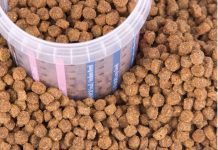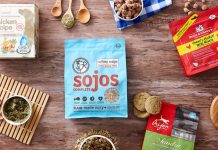Choosing the right food for your puppy is one of the most important decisions you’ll make as a pet owner. Just like humans, puppies have unique dietary needs that vary significantly based on their breed and size. Whether you have a tiny Chihuahua or a robust Great Dane, ensuring your furry friend receives the appropriate nutrition is crucial for their growth, development, and overall health. In this article, we’ll explore tailored puppy food recommendations that cater to the specific needs of different breeds and sizes. Our warm and instructive guide will help you navigate the myriad of options available, ensuring your puppy gets the best start in life with a balanced and nutritious diet. Let’s embark on this journey together, ensuring your beloved companion grows up healthy, happy, and full of energy.
Choosing the Right Nutrition for Your Puppy: Understanding Breed and Size Needs
When it comes to nurturing your puppy’s growth, understanding their unique dietary needs based on breed and size is crucial. Puppies of different breeds have varying energy levels, growth rates, and potential health issues, all of which influence their nutritional requirements. Small breed puppies, such as Chihuahuas and Pomeranians, often have faster metabolisms and may benefit from calorie-dense foods to support their rapid energy expenditure. On the other hand, large breed puppies, like Labradors and Great Danes, require controlled levels of calcium and phosphorus to ensure proper bone development and avoid joint problems.
To ensure your furry friend gets the best start, consider the following recommendations:
- Small Breeds: Opt for kibble that is easy to chew and rich in high-quality proteins and fats. Look for formulas that promote dental health.
- Medium Breeds: Choose a balanced diet that supports steady growth, with a mix of proteins, carbohydrates, and healthy fats.
- Large Breeds: Select a formula that supports joint health and controlled growth, often labeled specifically for large breed puppies.
Remember, consulting with your veterinarian can provide personalized insights tailored to your puppy’s specific needs, ensuring they grow up healthy and happy.

Tailored Feeding Plans: Specific Puppy Food Recommendations for Small, Medium, and Large Breeds
Every puppy, regardless of its size, deserves a diet that caters to its unique growth and energy needs. For small breeds, look for foods rich in protein and fats to support their high metabolism and energetic nature. Options with smaller kibble sizes are ideal to prevent choking and ensure easy digestion. Brands that include ingredients like chicken, lamb, or salmon are excellent choices for these pint-sized pups.
Medium breeds benefit from a balanced diet that supports both muscle development and bone growth. Foods that incorporate whole grains and vegetables can provide the necessary fiber and nutrients. For large breeds, focus on formulas designed to support joint health and controlled growth. Look for options with glucosamine and chondroitin, as these ingredients help maintain healthy joints. Avoid overfeeding to prevent rapid growth, which can lead to skeletal issues.
- Small Breeds: High protein and fat, small kibble size
- Medium Breeds: Balanced diet with whole grains and vegetables
- Large Breeds: Joint support with glucosamine and chondroitin
Ensuring Optimal Growth: Nutrient-Rich Diets for Different Puppy Sizes and Their Unique Requirements
Feeding your puppy the right diet is crucial for their growth and development, and it varies significantly with breed and size. Small breed puppies, like Chihuahuas and Pomeranians, have fast metabolisms and require calorie-dense meals to maintain their energy levels. Look for foods rich in protein and fat, ideally formulated to cater to their high energy needs. Medium breed puppies, such as Beagles and Bulldogs, benefit from balanced diets that support steady growth without encouraging rapid weight gain. Opt for foods with a balanced ratio of proteins, fats, and carbohydrates to support their moderate energy levels.
- Large breed puppies, including Labradors and Great Danes, need a diet that promotes slow and steady growth to prevent joint issues. Choose foods with controlled calcium and phosphorus levels.
- Consider the unique nutritional requirements of your puppy’s breed. For example, some breeds might need additional omega-3 fatty acids for a healthy coat.
- Consult your veterinarian for specific dietary recommendations tailored to your puppy’s breed, size, and activity level.
















